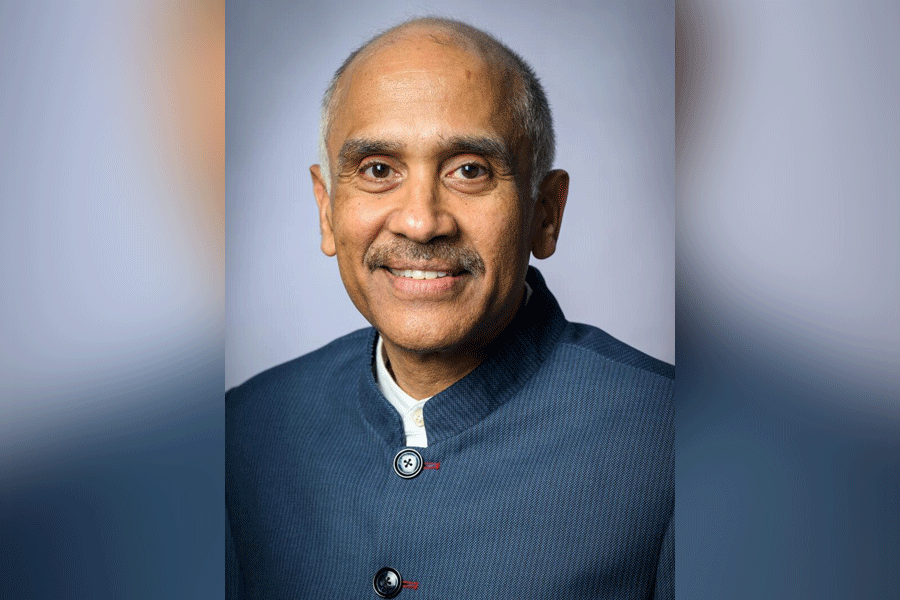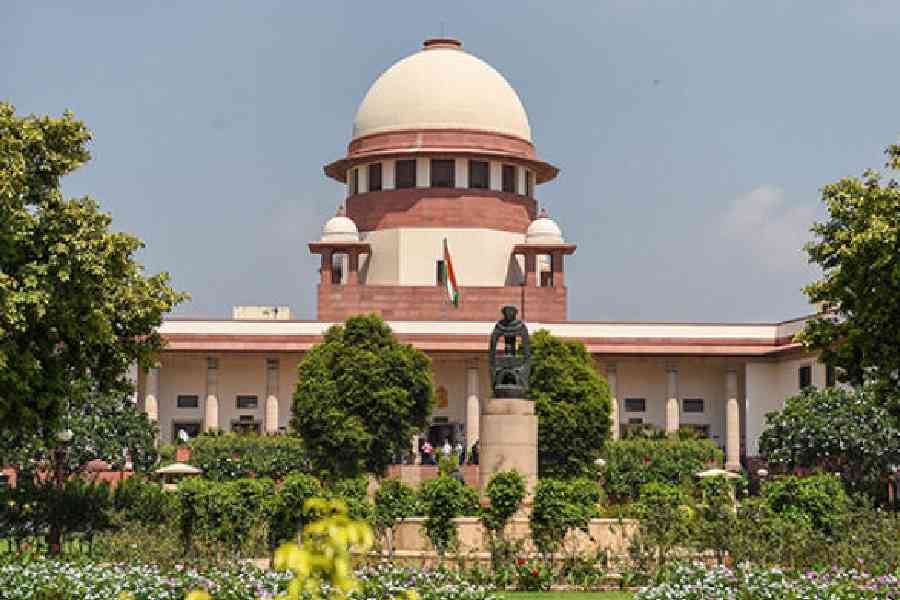
The rearguard action that Rajputs have steadfastly fought to find honour in medieval defeat continues with the battle of Bhansali. Once upon a time the effort to salvage glory from the wreckage of history consisted of bardic narratives and modern hagiographies that talked up episodes of individual valour, embedded though they were in collective failure.
Indian cricket fans of a certain age will sympathize with this strategy. There was a time when the Indian cricket team won very little: it managed a few honourable draws and lost most of the Tests it played. Being a fan meant lingering over great individual performances in a losing cause. Pataudi, hobbled but heroic, limping to two brave fifties in Australia; Gavaskar scoring centuries in both innings of a Test against Pakistan on a tour that we lost 2-0; Azharuddin's blazing hundred in England in reply to Graham Gooch's match-winning triple century; these performances gave us something to remember. We found consolation where we could: we totted up individual averages, counted Gavaskar's centuries and proved to our satisfaction that Kapil Dev was a better all-rounder than Ian Botham, Richard Hadlee and Imran Khan. Especially Imran Khan.
Likewise, revisionist patriots and virile Hindus were fans first and historians afterwards. They looked to former Rajput captains for both inspiration and consolation. Rana Sanga and Rana Pratap became names to conjure with in colonial India as generations of Bengali boys called Rana will tell you. The heroic refusal of the rulers of Mewar to serve as vassals was read as a moral victory in the absence of any other kind. More recently, Hemu, who occupied Delhi before being defeated by Akbar's army, was hailed by the Rashtriya Swayamsevak Sangh and the Vishwa Hindu Parishad as an Indic night-watchman who briefly occupied the imperial crease before Akbar's long innings.
This habit of restaging history's hinge moments by writing romances like like Bankim Chandra Chatterjee's Anandmath or epic poems like Shyam Narayan Pandey's Haldighati amounts to a kind of book cricket where your team scores eight hundred runs between morning assembly and the tiffin break and wins by an innings and five hundred runs by the time the school bell rings. It happens everywhere, this cult of the Light Brigade that ennobles defeat. In other countries, though, the fact of defeat isn't disputed, just its meaning.
In India, however, the Bharatiya Janata Party government of Rajasthan and its historians have expanded the possibilities of this consolatory genre: they have discovered that Maharana Pratap of Mewar didn't just live to fight another day in 1576, he actually won the battle of Haldighati. In Rajasthan's Class X textbooks, the canard that Rana Pratap lost the battle has been fixed. This has opened up other inflection points in history that might have been misread, not just in India but elsewhere. For example, the real but neglected possibility that Napoleon might have won Waterloo. Or the suppressed alternative history of 1857 where Rani of Jhansi didn't die but went into hiding in the Terai. This shouldn't be a stretch in a country where reasonable people open to evidence believed that Subhas Chandra Bose was recently alive.
But the growing controversy over the film Padmavati has taken revisionism to the next level: it's now at the stage where it is possible to see history as a form of augmented reality. The potential of this breakthrough is incalculable. The Shri Rajput Karni Sena which has campaigned against anti-Rajput calumny throughout recorded history (people say that it's nearly as old as Facebook but that might just be folklore), is a storied army that has defended the honour of Rajputs one film at a time. It tried to stop the screening of Jodhaa Akbar on the grounds that showing Akbar romancing a Rajput princess was a form of love jihad. Here the Karni Sena was an anti-Romeo squad with Akbar cast as Romeo. It also protested the Salman Khan film, Veer, by vandalizing theatres. This time round, its leaders threatened to cut off Deepika Padukone's nose and Sanjay Leela Bhansali's head.
Predictably, media coverage has focused on the violence of this statement while missing its real significance. Its real significance is the Hindu Right's collective decision to transcend narrowly Hindu categories and put communalism on a stable, secular footing. The Padmavati controversy, properly understood, marks an ideological shift. For the first time, the historical narrative of Hindutva is being advanced without sectarianism.
Consider the facts. Not only the Karni Sena but also three BJP chief ministers, Shivraj Chouhan, Yogi Adityanath and Vasundhara Raje, have asked that Padmavati be banned because it insults a fictional Rajput heroine dreamt up by a medieval Muslim poet. Padmavat is an epic written in Avadhi by Malik Muhammad Jaisi that dramatized the story of the siege of Chittor by by inventing a wife for Chittor's king called Padmini and making her the object of Alauddin Khilji's desires. Once Jaisi invented this story in the middle of 16th century, his fiction went viral. Persian historians and Rajput bards retold it as history.
Now we have the inspiring spectacle of a Rajput monk who runs Uttar Pradesh, a Maratha queen who rules Rajputana and a Thakur chief minister in charge of India's central province, asking that a film be banned or bowdlerized because a medieval Muslim poet created a fictional Hindu heroine and turned a real Muslim ruler into a proper villain. What could be more secular than that?
The willingness of these BJP chief ministers to overlook the Muslim provenance of the story plus their refusal to pull their punches merely because the director of the film and its stars are Hindus, is a good example of desi secularism in action. The media coordinator of the BJP in Haryana has offered a ten-crore-rupee bounty to anyone who decapitates both Padukone and Bhansali. It's important to attend to the consistency of this position and its principled blindness to religious affiliation. Instead of harping on the vigilantism that this bounty might encourage, we should acknowledge the intellectual sophistication that allows this BJP functionary to read Hindus like Bhansali, Padukone and Singh as floating signifiers of Muslim hegemony over the medieval past.
It is also notable that the BJP's chief ministers grasp the postmodern insight that fictional origins don't disqualify a narrative from being true. There's nothing true or false but thinking makes it so. Even the Sikh chief minister of Congress-ruled Punjab has backed the queen, the yogi and the commissar in their demand that the film be banned. This secular, post-partisan, multi-faith coordination of prejudice makes the total rout of Muslims in medieval India an exciting possibility.
India's cricket fans eventually found heaven in a television show called 'India Glorious' that ran a loop of Test footage in which India never lost. After a thousand years, born-again bharatvasis are poised to write a history of India where Hindus always win. In the standard Class X textbook derived from this new narrative, the chapter on medieval India might be called "Rajputs Rampant". The chapter heading for primary schoolchildren could be more colloquial: "Thakurs on Top", for example, or "Ranas Rule!". In either case, a millennium of mortification will be wiped away in a single stroke.
Where does that leave Akbar, then?
Akbar who?











